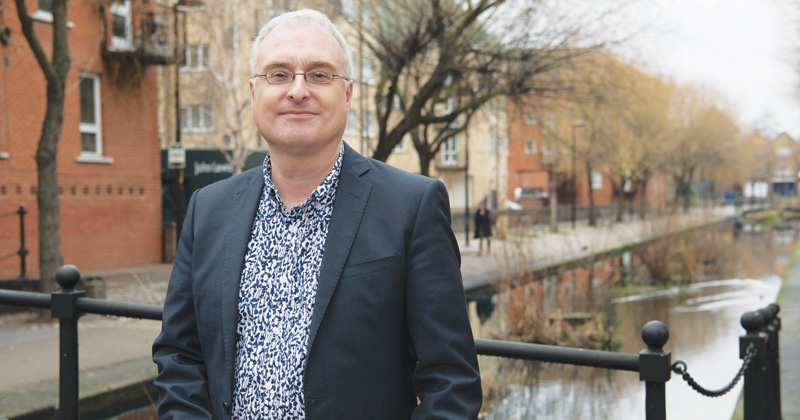The UK’s dogmatic approach to teaching reading does a disservice to the different ways and speeds at which young children learn, writes Jan Dubiel
Ofsted’s recent Bold Beginnings report was controversial for several reasons, not least because it appeared to suggest that the core purpose of the reception year is learning how to read.
Literacy is important, but as an early-years specialist, I believe there are lots of things at that age that are just as important as learning to read.
In many countries, children don’t start the formal process of decoding print until they’re seven. In England it starts at four or five, and we have globally unusual expectations of children’s decoding skills at a very young age, even though psychologically and cognitively, it is quite a complex process.
The worry is that we might try to leapfrog all this valuable foundation
Much research exists to suggest that a delayed start to formal decoding tends to be more successful, which is the approach taken by countries like Denmark, Finland, Singapore and China.
That’s not to say children don’t read earlier, because of course there’s a bell curve of development, and there will always be children who are cognitively and experientially prepared, and will pick it up really quickly.
But the real concern is that government expectations of early literacy are putting downward pressure on some children who may not be developmentally ready and need a range of experiences before the technicalities of decoding are primed to be successful.
Learning to read is a complex process, and one of the aspects it starts with understanding is language – it’s dependent on being read to, talked to, and listened to. It starts with things like being able to hear and replicate different sounds, and ultimately culminates at the point where a child can say what makes an “s” sound and what makes a “t” sound.

Decoding writing requires visual discrimination, and starting to understand that print has meaning. So there’s a whole journey up to the point where a child is ready to learn the phonetic code, because they are at a point in their development, understanding and experience where they’re able to understand how it fits with everything else.
The worry is that we might try to leapfrog all this valuable foundation and go straight into attempting phonics with young children. But because they don’t necessarily have all those experiences in place, it’s not as effective. So from a policymaker’s point of view, early years is inconvenient because there is a wide spectrum of what a “typical” level of development looks like.
Educators trying to do too much at an early stage can have the opposite effect of what they’re aiming for
There’s an interesting American research project called ‘Moving up the grades’, which looked at two different approaches to learning to read. One was a developmental approach, starting with stories and introducing phonics when children were ready, and one was much more regimented about the whole-class teaching timetable.
As children got to five or six, those who’d been taught all at once were better at decoding and reading, and by the time they got to seven or eight they were more or less level. But by the time they got to 10 or 11, the developmental group were outperforming the directly taught children by up to eight months in terms of their skills.
This shows that educators trying to do too much at an early stage can have the opposite effect of what they’re aiming for.
We commissioned a review of all the available early-years research, when we were producing our Hundred Review in 2017, and identified five aspects that are universal throughout every study.
These are personal social emotional development, physical development, language, self-regulation, and executive functioning. Everyone agrees at least that these are the main things that make a real difference in terms of getting good academic outcomes.
So I’m not saying that it’s completely inappropriate to teach phonics in reception. It will be right for some children, but for others, practitioners will need to focus on the preparatory skills that lay the groundwork for being able to decode. Early-years practitioners need the training, the freedom and professional self-belief to guide each child’s learning as they are ready.
Jan Dubiel, head of national and international development at Early Excellence







Don’t tell Nick Gibb. He’ll have an aneurysm. The government is about to launch Literacy Hubs, and you can bet that the contracts will only be awarded to those people/organisations who toe the Gibb line of phonics first, fast and only. But then this government has famously “had enough of experts”, apart, of course, from those experts who tell them what they want to hear and confirm their blinkered prejudices.
John – in 2014, Private Eye found that government matched funding for phonics material was very profitable for certain publishers. One in particular, Ruth Miskin, had been a DfE adviser. http://www.localschoolsnetwork.org.uk/2014/02/phonics-the-sounds-that-letters-make-kerching
Miskin also benefited from a share of £75m from the Teaching and Learning Fund (Oct 2017).
Ofsted is eroding teacher professionalism by mandating a particular form of phonic and saying it should be introduced in Reception. http://www.localschoolsnetwork.org.uk/2017/11/ofsted-erodes-teacher-professionalism-by-recommending-sole-use-of-systematic-synthetic-phonics
5 year old, who can already read normally, is getting confused by phonics. What do we do?